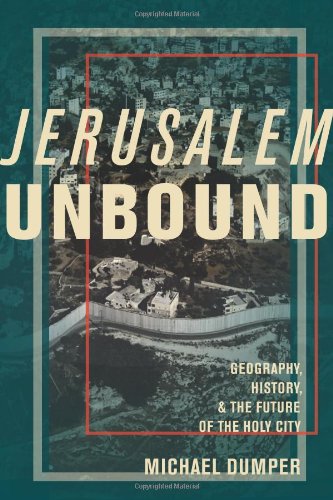

Most ebook files are in PDF format, so you can easily read them using various software such as Foxit Reader or directly on the Google Chrome browser.
Some ebook files are released by publishers in other formats such as .awz, .mobi, .epub, .fb2, etc. You may need to install specific software to read these formats on mobile/PC, such as Calibre.
Please read the tutorial at this link: https://ebookbell.com/faq
We offer FREE conversion to the popular formats you request; however, this may take some time. Therefore, right after payment, please email us, and we will try to provide the service as quickly as possible.
For some exceptional file formats or broken links (if any), please refrain from opening any disputes. Instead, email us first, and we will try to assist within a maximum of 6 hours.
EbookBell Team

4.4
12 reviewsJerusalem's formal political borders reveal neither the dynamics of power in the city nor the underlying factors that make an agreement between Israel and the Palestinians so difficult. The lines delineating Israeli authority are frequently different from those delineating segregated housing or areas of uneven service provision or parallel national electoral districts of competing educational jurisdictions. In particular, the city's large number of holy sites and restricted religious compounds create enclaves that continually threaten to undermine the Israeli state's authority and control over the city. This lack of congruity between political control and the actual spatial organization and everyday use of the city leaves many areas of occupied East Jerusalem in a kind of twilight zone where citizenship, property rights, and the enforcement of the rule of law are ambiguously applied.
Michael Dumper plots a history of Jerusalem that examines this intersecting and multileveled matrix and, in so doing, is able to portray the constraints on Israeli control over the city and the resilience of Palestinian enclaves after forty-five years of Israeli occupation. Adding to this complex mix is the role of numerous external influences -- religious, political, financial, and cultural -- so that the city is also a crucible for broader contestation. While the Palestinians may not return to their previous preeminence in the city, neither will Israel be able to assert a total and irreversible dominance. His conclusion is that the city will not only have to be shared but that the sharing will be based upon these many borders and the interplay between history, geography, and religion.